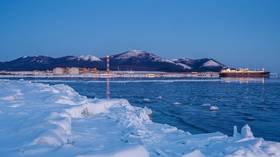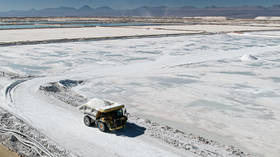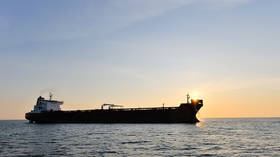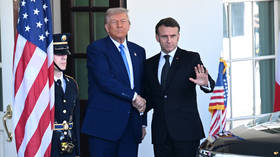Japan skirting Russian oil price cap – media
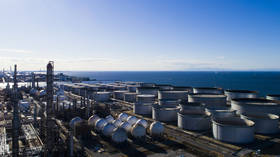
Japan purchased Russian crude oil at $68.5 per barrel in February, TASS news agency reported on Thursday, citing calculations based on statistics from the Japanese Finance Ministry.
The figure is above the $60 price cap that Tokyo agreed to with its Western allies, in an effort to punish Russia over the conflict in Ukraine.
Last month, Japanese importers reportedly bought 232,700 barrels of oil from Russia with a total value of 2.125 billion yen ($15.945 million). The average cost of a barrel from the February batch totaled $68.52, exceeding the Western price cap for Russian oil supported by Japan.
The measure, which came into force in December, bans Western corporations from providing insurance and other services to shipments of Russian crude unless the cargo is purchased at or below the set price. Another embargo banning almost all imports of Russian petrochemicals, and introducing price limits on diesel and other oil products, kicked in on February 5.
Tokyo has joined the price ceiling on Russian oil imports as part of a coordinated effort to lower Moscow’s oil revenues. The plan was pitched by Washington and backed by the G7, EU and Australia. However, Japan excluded oil imports from the Sakhalin-2 LNG project from the cap, stating that such a move would endanger the country’s energy security.
Sakhalin 2 supplies Japan with liquefied natural gas (LNG), which accounts for roughly 9% of Japan’s total LNG imports and 3% of its power supply.
In February, the president of Japan’s Petroleum Association, Shunichi Kito, said Tokyo may resume oil imports from the project if it is deemed necessary to ensure an uninterrupted supply of LNG. According to the Economy Ministry, Sakhalin-2 may have to stop both the production and liquefaction of natural gas if the oil reservoirs at the site overfill, which could occur if a suspension of shipments leads to crude not being taken out.
For more stories on economy & finance visit RT's business section
